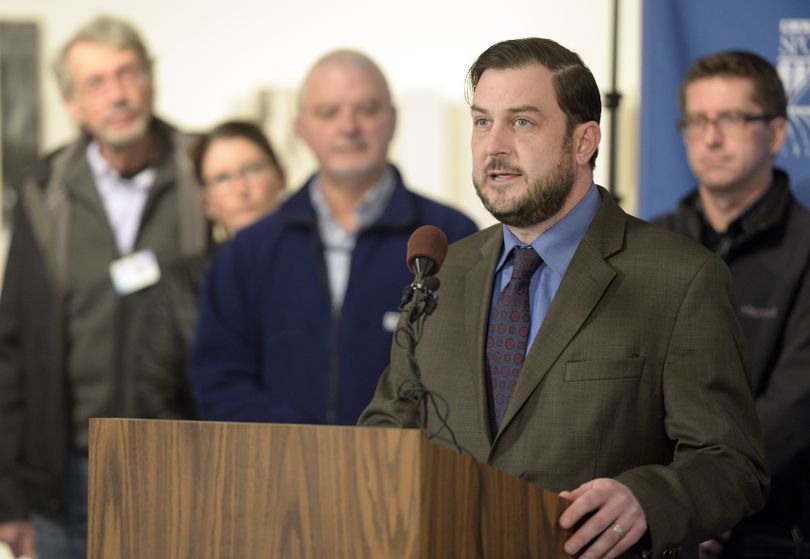Stuckart’s defense wasn’t “convincing” says Ethics chair, but still considers matter closed

Troy Bruner, head of the Spokane's Ethics Committee, said City Council President Ben Stuckart's leak of a confidential email had the ability to hurt the city, but there was no evidence of it doing so.
“Certainly there was a potential for harm to be done to the city,” Bruner said. “We had no evidence that harm was done, so we figured that the penalty should be minimal.”
In a unanimous decision by the committee last night, Stuckart was fined $250 for leaking a confidential email dealing with an open lawsuit.
Bruner said the matter was closed, but noted the committee will write a “strongly worded statement showing our disapproval of his actions and admonishing him.”
Stuckart, who publicly apologized for his actions, said he regretted forwarding the email. In his defense to the ethics committee, Stuckart said the information in the email was already public knowledge.
Bruner rejected Stuckart’s claims, saying they “weren’t convincing to us.”
“He said the email wasn’t bad because its contents were public knowledge. There was no way for us to know that,” he said. “He said you should be able to dismiss this because there was no harm to the city. We had no way to know if there was harm done to the city.”
Bruner said he was convinced that the matter had been resolved, even though he had an unanswered question.
“One personal observation I have, President Stuckart really wasn’t able to provide a compelling reason why he forwarded the email in the first place. That’s something I still don’t have an answer for,” he said. “But he was apologetic for his behavior and he did affirm that he would not engage with such disclosures in the future.”
